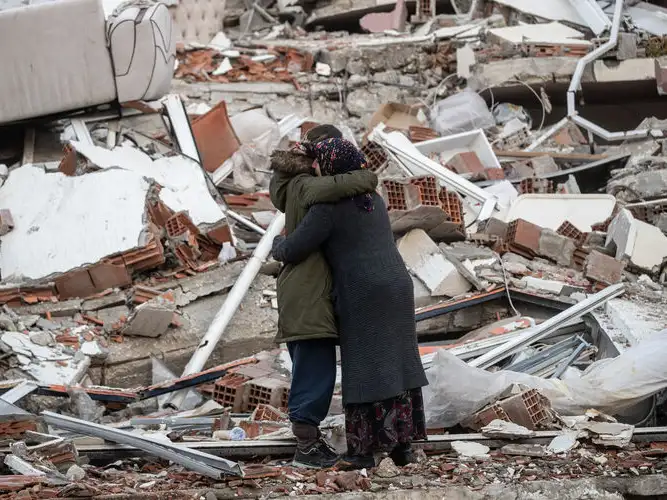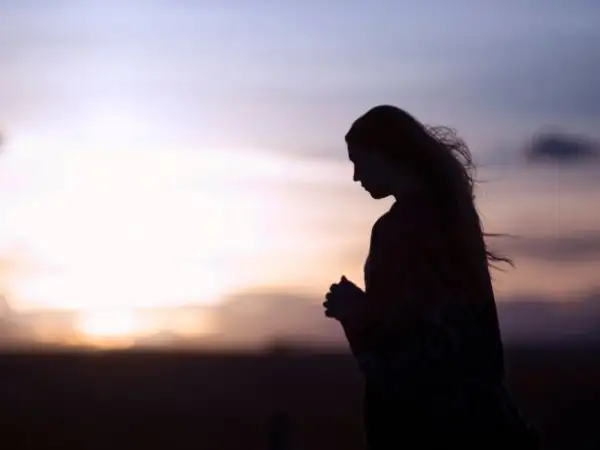Your donations will help reach vulnerable people fleeing war, poverty and natural disasters.


Ukrainian refugee children playing in a kindergarten run by CAFOD partner JRS Romania
A better world needs all of us. That’s why CAFOD have been working with Jesuit Refugee Service (JRS) Romania to support Ukrainian refugee children – the most vulnerable people to be forced to flee the violence of Russia’s invasion.
Catalin Albu, general manager at JRS Romania, writes about his work advocating for refugee children and their families, and helping children who have experienced trauma find some small moments of peace.
An island of hope
I sit and wonder why life has brought me so close to people in suffering, to hear their stories, to feel their pain as if it were my own, to search for solutions for every injustice that befalls them.
I work for a non-governmental organisation where I receive the same call from life day after day: I must be among those who are suffering – I must help them.
Sometimes, the weight of responsibility presses down on me; other times, I feel powerless. But each time, I tell myself that I cannot turn a blind eye. Their suffering pains me. I cannot simply pretend it does not exist. I do not know where I find the strength, just as I do not understand how so much suffering can exist in this world.
Today, I once again entered our kindergarten where we support over 90 refugee children from Ukraine. I visit it weekly to check on things, oversee administrative matters and ensure that all is running smoothly.
I push the door open wide and immediately I’m greeted by the smiles of teachers – all of them Ukrainian. I’ve spoken with each of them. I know their family stories. I know about the struggles they face at home, the relatives or friends they have lost on the front lines or in the brutal Russian attacks. I know that they often suffer in silence, rarely showing their pain.
Yet, despite everything, I am amazed to see that after three years of war the teachers still have the strength to smile. They’re still able to offer these children a small haven of safety in an uncertain world.
Despite the pain, they are here day after day. Their workplace feels like a home, an island of hope for the Ukrainian community.
More suffering than any child should see
War is the earliest memory for many of the children here. They have not had time to enjoy their childhoods, to run carefree through their homes and gardens, to fall asleep peacefully, knowing their parents are safe beside them. The trauma of being refugees has stolen their sense of normality. Many arrived in Romania in silence, clutching their mothers’ hands, looking around fearfully. Some no longer have fathers. Some have witnessed more suffering than any child should ever see.
The teachers do everything they can to support the children who have been unable to find a place in Romanian kindergartens. Children have been turned away from schools because there are too few places available. They have been excluded on the grounds that they cannot adapt, or that they have learning disabilities and disrupt classes. It breaks my heart to hear these stories. I feel the injustice extinguishing their confidence and crushing their will to keep going. But I always reassure them that everything will be alright and tell them not to worry.
I do not know how God could allow such atrocities, but perhaps it is also God who gives us the gift of doing everything in our power to help.
A tiny space filled with warmth, love and hope
The invaluable work of these teachers depends on donors, on those who can help us create even a tiny space for these children – a place that is small but filled with warmth, love and hope.
I’ve known some of these children for three years now. Many arrived deeply traumatised by the war, the separation from their families and the hardships of being refugees. These experiences left deep scars. The education we provide goes hand in hand with countless hours of therapy to help young people regain a normal sense of childhood. We have created a multitude of programmes, but the horrors endured in just a few weeks cannot be miraculously erased in a single day. It takes months of rehabilitation programmes.
Incredibly, in our kindergarten, I now see children laughing, playing, hugging me. When I have a moment of free time or when I think of new project ideas, this kindergarten, with its little angels, is my personal refuge. I know so many of them – Vika, Eva, Timor. We have sung together, danced together, I have helped them eat, helped them put on their shoes, we have coloured in pictures together…
And even though I do not speak their language (apart from a few words of Ukrainian), they all cling to me when they see me. At first, they were timid; now, they cling to me tightly when I arrive. Perhaps this “tall man with a beard” gives them some sense of security.
Finding courage
These children have always given me the courage and strength to speak on their behalf, and on behalf of their parents, about the injustices, hardships and problems they face. Every time I speak in public, I cannot help but picture Vika’s face, or Timor’s. It is for them that I speak – and for all those like them who, despite the beautiful political promises made on television, are, in reality, forgotten or deliberately excluded.
At first, Romania welcomed them with open arms. I witnessed extraordinary solidarity – an unprecedented generosity. But as the war became “normal” for the rest of the world, support began to dwindle. The Romanian state, lacking a clear plan, failed to sustain aid for these people. Their integration became a daily struggle.
Ukrainian refugees face immense challenges: too few school places; the complete absence of Romanian language classes; no medical insurance; difficulties in finding employment; extremely low wages.
Many families are being pushed into poverty due to bureaucracy and the lack of systemic solutions.
Human beings deserve more
Perhaps it is natural for the world to forget. It is human nature to grow accustomed to tragedy when it does not affect us directly. But for these people, the war has not ended. They cannot forget. They live each day with the same fears, the same uncertainties, the same unanswered questions.
I cannot forget either. I cannot become accustomed to their suffering. And I do not want to. I remain here to speak about them, to fight for their rights, to remind everyone that these people are not just statistics, but human beings who deserve more.
Since early 2022, CAFOD has worked with Jesuit Refugee Service (JRS) Romania who run centres across the country that have provided safe and dignified spaces for thousands of Ukrainian families, supporting them to access services and learn to navigate the Romanian system. Most recently, CAFOD has supported JRS Romania’s Kindergarten project for Ukrainian children in Bucharest.
Pray with us for refugees and migrants.



